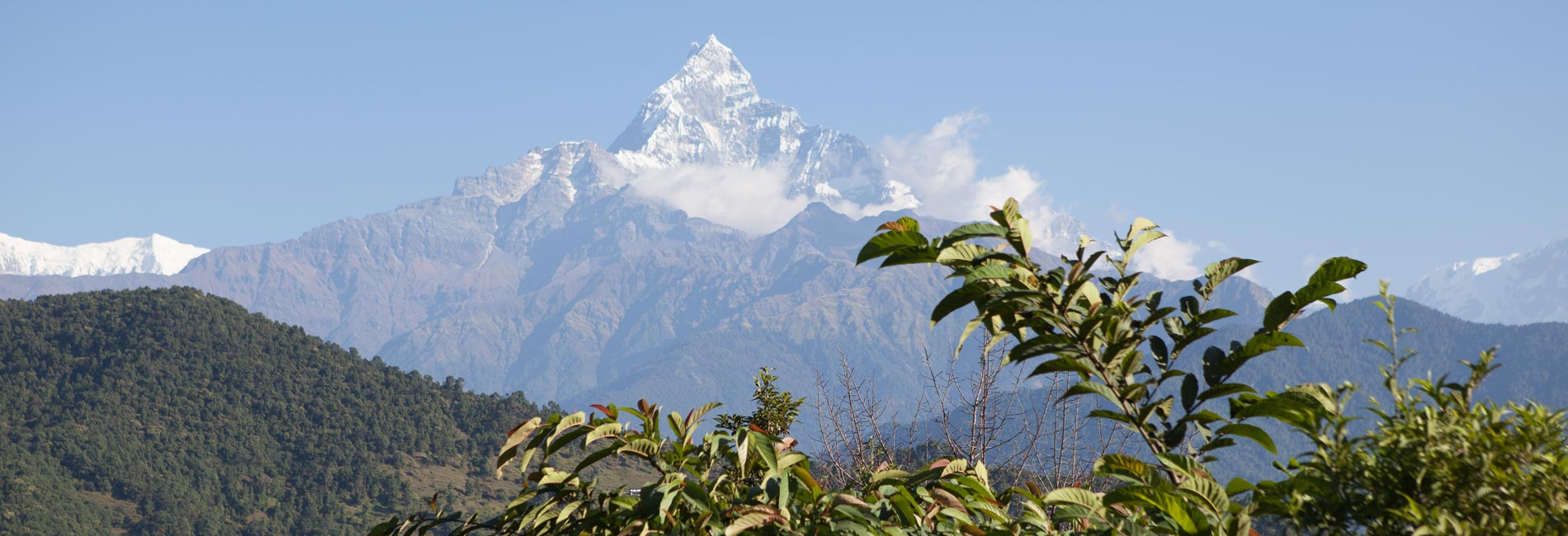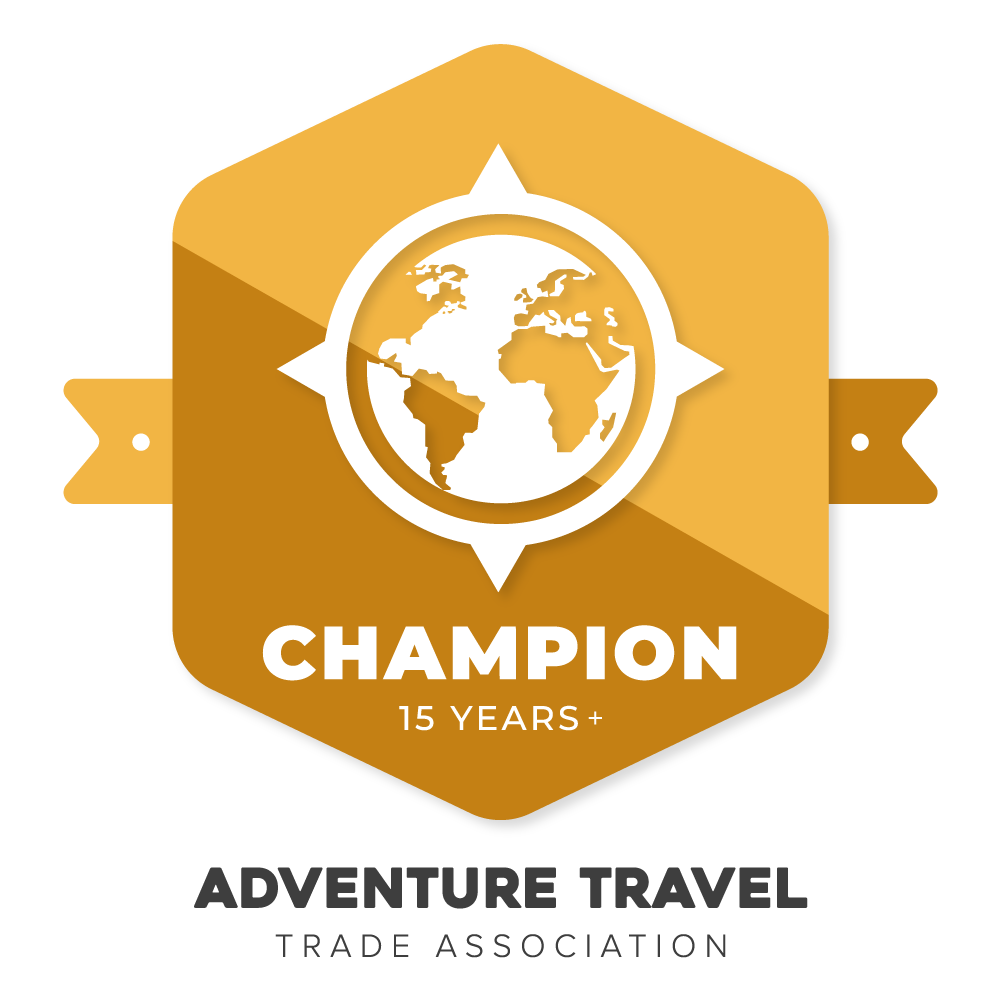Responsible Tourism & Sustainability Policy
Responsible tourism is very much imperative as it is a responsibility of each and every individual within the tourism sector. We as a responsible travel agency always aim to make positive environmental, socio-cultural and economic impact on the areas where we operate.
Our eco green practices continue to deliver improved ways of traveling, by minimizing our impact on the environment and ecosystem. With each and every one of our treks and tours we are always conscious of the impact that we have on the environment and limit our group numbers to a maximum of 14 at any one time.
Recognition by Travelife
We are recognized as Travelife Partner for including sustainability principles into our operations and successfully completing the sustainability, management, reporting and compliance obligations. We satisfy more than 100 benchmarks regarding customer information, product range, office management, international business partners, labor relations, and so on. We are also one of the few companies in Nepal (14th company to be precise) to have reached the Partner status. Travelife, which was established with the support of the European Commission, is the leading international sustainability certification for the travel industry. We are proud of being a Travelife Partner and incorporating sustainability principles in operations top to bottom.
Here are just a few main policies that we follow as a responsible and sustainable tour operator:
Environmental
- At the office we run energy saving bulbs and turn off any unnecessary electricity. Each night we switch off all power sources, including computers at the power point.
- For all the high-altitude expeditions at the base camp, the solar panels are used instead of batteries which plays very important role in environment conservation.
- We are the member of Kathmandu Environmental Education Project (KEEP). We regularly collect the garbage from the trekking and climbing areas and we dispose them in respective dumping areas. Especially during the climbing trip, clients are applicable to pay some rubbish deposit fee and the fee will be refunded after returning the garbage like tin cans, wrapped food, plastic etc. which was taken on the trip.
- We strongly follow the 3R i.e reduce, reuse and recycle.
- We request all our clients to bring water containers to re-use boiled/treated water instead of buying bottled water while trekking in remote areas and at high altitudes.
Socio-cultural
- We promote community-based tourism such as homestay trip (E.g. Home Stay Trek (Village to Village) – 13 Days) and volunteer trips in rural villages that involve farming, constructing, rebuilding and so on.
- We have partnered with a local NGO Sambhav Nepal supporting in building school, hostels and houses of poor family from remote areas.
- We organize educational programs such as teachers training, volunteering teachers, in Gorkha district where the students lack qualified teachers.
Economic
- We are providing employment opportunities to the local people and evaluate their active participation and performance on a regular basis.
- We encourage local people to actively participate on promoting local art and culture which can be the good source income for their daily livelihood.
Responsible Tourism Guidelines at Ace the Himalaya
Respecting Cultural Differences
The Nepali culture is markedly different from the Western culture. There will definitely be a few things that might come across as very intriguing and surprising, and occasionally uncomfortable, to someone unfamiliar to the Nepalese lifestyle. There is no doubt that these differences are exactly what we love to celebrate, and in the same light we expect our clients to get the most out of what only Nepal can offer.
There are a number of things to consider, from the clothes one wears, how one eats, the tone one uses while talking, to the proximity one maintains while communicating. Besides, as with any countries, Nepal operates on a different concept of time – things happen when they happen! Patience, courtesy and smiles are virtues that lead to many memorable moments during the trip.
Friendship
Making new friends will be one of the greatest joys of your travels. Accept and enjoy offers of hospitality when you can. By taking the time to chat with the locals you will learn about their daily lives, culture and attitude to life, plus have a very enjoyable time and a few laughs. This is a chance for them to learn about your culture too.
Be prepared for lots of questions. Just walking in the street you may be asked: “What’s your name? Where are you from? How old are you? Where are you going?” – perhaps questions you may consider personal. Don’t be affronted or consider it rude or an invasion of privacy. It’s usually genuine curiosity, friendliness or a desire to practice their English. Respond with patience and in a cheerful manner. Concepts of privacy in some countries can be very different to your home country.
How you can help
Pollution and waste management is a huge problem throughout the world. In some countries, particularly in Nepal, Bhutan, Tibet and in India, disposal systems are inadequate and recycling of plastics is limited.
We suggest avoiding plastic bottles and plastic packaging where possible and take along your own bag when shopping. Consider packing a water filter, water purification tablets or iodine to purify drinking water. Plastic bags will be offered for everything – don’t be shy in suggesting that it isn’t needed. Don’t be fooled by the rubbish bins on public transport as they may be emptied straight out the window! Collect and dispose of at the next town or hotel.
There is little education on environmental awareness in many towns in Himalaya, so many locals are unaware of the implications of littering. Our aim is to educate by example, rather than through lecturing.
Make sure your porters are treated fairly
We’ve all heard the stories of porters left on the mountainside or freezing outside tents while travelers revel inside. Our travelers, though, know that Ace really is treating their porters fairly. Here’s a quick run-through of our company’s policy in this regard:
- Insurance: All our porters are insured well and covered for medical and rescue / evacuation services.
- Weight limits: We allow a maximum weight limit of 30kg per porter for trekking. Many national and international companies force porters to carry more than 50 kg each.
- Health and well-being: Our leading guides ensure that porters are treated fairly and in a hospitable manner. We ask our guests to inform the guide if a porter needs more attention in terms of health, food and sleep during the trip.
- Awareness: We educate the porters about our environmental policies during the trip.
- Appropriate Clothes: We equip the porters with warm clothes, good shoes and all the necessary equipment for high altitude trekking. They are also provided adequate shelter, food, drink and wages.
Dinning & Shopping
We highly encourage eating local food and drinks, rather than seeking imported familiar snacks and drinks. Besides giving you the authentic Nepali taste in a very reasonable price, local food helps to stimulate regional economy.
Likewise, it would help the local villages on the grass-roots level if handicrafts and souvenirs are bought directly from individual manufacturers in the villages instead of fancy emporiums and departmental stores.
We ask our clients not to purchase endangered flora and fauna products that may be offered for sale. The chances are the wildlife products have been smuggled and we have strict policies of not supporting any illegal products, and urge our clients to follow suit.
Prostitution and Drugs
We are strongly opposed to any of our clients’ visiting prostitutes while travelling with Ace the Himalaya. Prostitution is a gross infringement of human rights, as women and children are sold into the industry by their families and are “imprisoned” in brothels. Legal, ethical and medical reasons lead that our clients stay on the safe side in this matter.
Illegal drugs are not tolerated on any Ace the Himalaya’s trips and the group leader has the right to expel a member of the group if drugs are found in his/her possession. It must be understood that possession or use of drugs not only contravenes the laws of the country, but also puts the rest of the group at risk. Smoking marijuana and opium is practiced in some parts of the world, but is not acceptable for Ace the Himalaya travelers or staff.
Donations & Gifts
Please do not give money, pens, or sweets to the local people in the communities we visit, as it can promote a ‘begging culture’. It can create unequal relationships between tourist and visitor, with tourists being seen as purely ‘givers’, and it can also strip self-esteem away from people when they get money for simply being poor rather than having to solve their own issues of poverty through community action. With sweets – local people may not have access to dentists, nor be able to afford them.
If you wish to donate, your group leader may be able to suggest local projects that Ace the Himalaya is involved with. Some local villages can be supported by buying their craft work etc. Pens, note books and other items for children are usually best distributed via a school teacher or community leader.
In most of Ace the Himalaya’s trip areas leaders collect clean usable clothing from travelers at the end of a trip, for distribution to needy communities. These can be left at some of our base hotels. Please check with your group leader.
It is considered proper to make a small donation at the end of a visit to a pagoda, monastery or temple – most have a contributions box for this purpose.
Giving something back to the communities
At Ace the Himalaya, a part of our travel philosophy is to develop tourism as a two-way means of communication. When you return home, we’d like you to think about how you can give something back to the country you visited. After your trip, you will probably be more aware of the environmental, social, political and cultural problems that some local communities face. There are various agencies and groups trying to address these issues, aiming to assist developing countries maintain their cultural identity, develop sustainable resources and improve social justice situations. All of them require resources.
Money is not the only way you can assist, as simply providing your time and/or skills might be as valuable and useful. Things you could do:
- Join a development agency or other group devoted to concerns in developing countries.
- Become a volunteer and donate time to aid groups.
- Buy your birthday or Christmas presents at shops run by various third world charitable groups.
- Write letters for Amnesty International to assist political prisoners or to put pressure on governments to change some intolerable situations.
- Or just be a more environmentally friendly household and help to use the world’s resources more efficiently.










